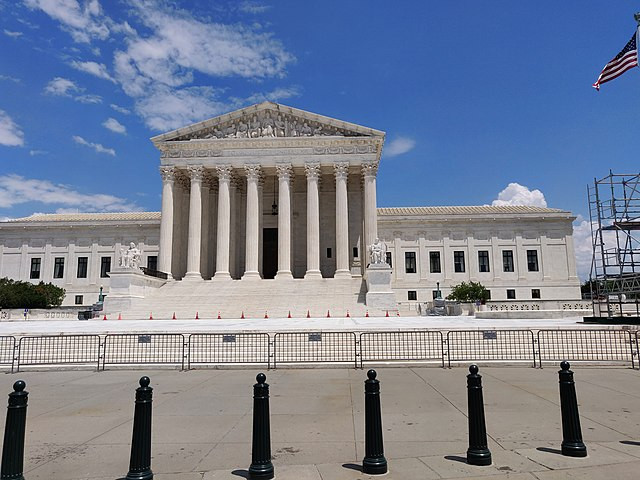The Supreme Court has temporarily blocked President Donald Trump from using the 1798 Alien Enemies Act to deport a group of Venezuelan migrants from northern Texas, a significant legal setback for the administration's immigration crackdown. The unsigned opinion, issued Friday, found that the administration's process lacked sufficient due process protections, including adequate notice for migrants to contest their removal.
The decision sends the case back to the 5th U.S. Circuit Court of Appeals in New Orleans for further review. Justices Clarence Thomas and Samuel Alito dissented, while Justice Brett Kavanaugh concurred in part, calling for the court to take up the matter directly and swiftly.
The court noted that the administration had failed to meet basic procedural safeguards. Migrants received removal notices "devoid of information about how to exercise due process rights," with only 24 hours to respond, a timeline the court said did not "pass muster."
The justices also pointed to the case of Kilmar Abrego Garcia, a Maryland resident who was mistakenly deported to El Salvador and whom the government admitted it could not return. "The detainees' interests at stake are accordingly particularly weighty," the court stated, emphasizing the irreversible nature of deportation.
Trump reacted to the ruling on his Truth Social platform, writing: "The result of this decision will let more CRIMINALS pour into our Country, doing great harm to our cherished American public. The Supreme Court of the United States is not allowing me to do what I was elected to do."
Trump invoked the Alien Enemies Act in March, designating Venezuelan gang Tren de Aragua as a foreign terrorist organization. The administration began deporting suspected members to a prison in El Salvador before legal challenges halted further removals. The president argued the law granted him wartime authority to expedite deportations without court review.
Federal courts in Texas, Nevada, Colorado, and elsewhere issued temporary blocks on enforcement of the act, citing pending legal questions. A Trump-appointed judge in Southern Texas ruled on May 2 that the administration's use of the law was unlawful.
The American Civil Liberties Union filed multiple habeas corpus petitions on behalf of detainees, asserting that deportations were being carried out with little to no warning. The group said that notices issued to detainees in northern Texas in mid-April gave less than 24 hours' warning, which "cannot by any stretch be said to comply with this court's order."
Judge James Hendrix, appointed by Trump, denied a request to block two specific deportations at the Bluebonnet Detention Center in Anson, Texas, citing the government's assurance that the individuals were not at immediate risk. The Supreme Court criticized Hendrix's delay, stating his "inaction - not for 42 minutes but for 14 hours and 28 minutes - had the practical effect of refusing an injunction."
Justice Alito, joined by Thomas, sharply criticized the majority for intervening prematurely, accusing the court of overstepping its jurisdiction. "It has plucked a case from a district court and decided important issues in the first instance," Alito wrote in his dissent.
The high court's earlier order on April 7 had technically allowed Trump to continue using the law but ruled that targeted migrants were entitled to notice and access to habeas review. The May 16 ruling extended that protection, effectively halting removals under the act until lower courts and potentially the Supreme Court fully resolve its legality.
Steve Vladeck, Georgetown Law professor and CNN Supreme Court analyst, said: "Today's ruling effectively extends the temporary freeze that the justices put on Alien Enemies Act removals from the Northern District of Texas back on April 19." He added that, with similar blocks in place nationwide, "it's effectively pausing all removals under the act."






